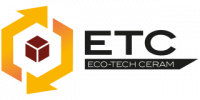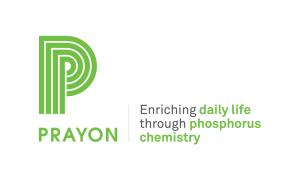Joint laboratories, often referred to as LabComs in France, offer a model for long-term collaboration with industrial partners (microenterprises, small and medium-sized enterprises). They are founded on governance, a roadmap for research activities and the resources needed to jointly implement the roadmap, which are shared in the medium and long term. They operate on the basis of cooperation contracts that regulate structural projects involving major scientific and industrial issues with the aim of generating new knowledge that will create value for the partners.
- LabEx SOLSTICE
-
SOLSTICE - SOLaire LabEx: Science, Technology and Innovation for Energy Conversion
OBJECTIVE
This Labex led by the PROMES UPR 8521 laboratory in collaboration with RAPSODEE and the Institute IES UMR 5214 focuses on Science for Energy Conversion. It aims to contribute to the development of solar energy applications based on basic research and technological innovations in thermal (T), thermodynamic (CSP) and photovoltaic (PV) conversion, the production of gaseous energy carriers, and the synthesis of materials by and for solar energy. Examples include the study of pseudo-fluid air particles for collecting and storing heat from solar energy between 600 and 800°C and the development of 2D nanomaterials (sulfides and graphene) using solar power.
Years: 2011-2025
CONTACT
Ange NZIHOU, professor at RAPSODEE
- MARVAPOL
-
MARVAPOL - Advanced Recycled Materials by Vapothermolyse
OBJECTIVE
RAPSODEE and industrial partners Alpha Recyclage Composite and Alpha Carbone, French manufacturers in the field of recycling end-of-life tire and composites, created the MARVAPOL LabCom in 2015 with the aim of developing a viable recycling technique for end-of-life tires and carbon-fiber-reinforced organic matrix composites (CFRC), and in general for all materials with advanced organic matrices, in the form of manufacturing waste and scraps. In 2017, the Albi site of Institut Clément Ader UMR CNRS 5312 joined this consortium, bringing its expertise in the characterization and development of analytical methods for recycled carbon fibers.
CONTACTS
- Elsa WEISS-HORTALA, assistant professor at RAPSODEE
- Quentin GOVIGNON, assistant professor at Institut Clément Ader UMR CNRS 5312 Albi
PARTNERSHIP


- SOLUTEC
-
SOLUTEC - Eco-stock solutions for complex industrial waste heat recovery
OBJECTIVE
The SOLUTEC LabCom developed through numerous collaborations between RAPSODEE and its industrial partner Eco-Tech Ceram since 2015. Their overall objective is to develop improvements to Eco-Stock® (thermocline storage unit for “clean” fumes by marketed Eco-Tech Ceram) solutions for waste heat recovery on complex industrial fumes. Their work (2021-2025) entails the characterization of fumes from two industrial sectors (ceramics and metallurgy), the identification and understanding of corrosion and condensation mechanisms in storage tanks, and the control of these phenomena in industrial environments.
The solutions they develop will be validated based on a TRL scale (6 to 8) with the aim of marketing new Eco-Stock versions (version 2 and later) adapted to these two sectors. During the 2025-2030 period, they will target fumes from other industrial sectors that they have already identified: cement, lime, steel, aluminum and glassware.
Years: 2021-2030
CONTACT
Doan PHAM MINH, professor at RAPSODEE
PARTNERSHIP

- PHOSFORLAB
-
PHOSFORLAB
OBJECTIVE
This LabCom was created by RAPSODEE and its industrial partner PRAYON (Belgium) with a focus on phosphate-based materials applied to various fields ranging from energy and the environment to agri-food. It includes the investment in a pilot energy storage facility using materials developed through this LabCom.
On June 7, 2024, the two partners renewed their partnership. The agreement opens a new 4-year phase, which aims to bring to the industrial scale several of the innovations resulting from previous work: the development of phosphate-based membranes for water treatment, the structuring of adsorbents for the capture and neutralization of pollutants contained in industrial fumes, the recovery of strategic elements in used batteries and the use of phosphates in the food sector.
Years: 2020-2028CONTACT
Ange NZIHOU, professor at RAPSODEE
PARTNERSHIP

